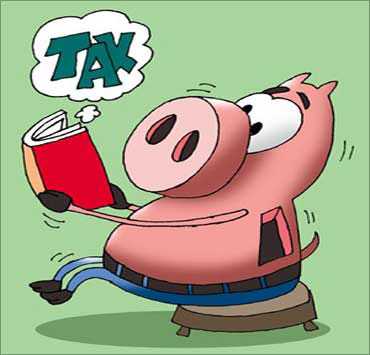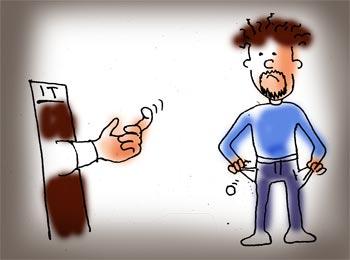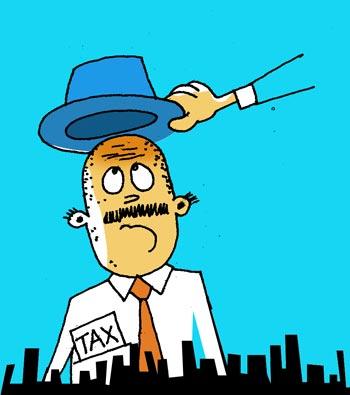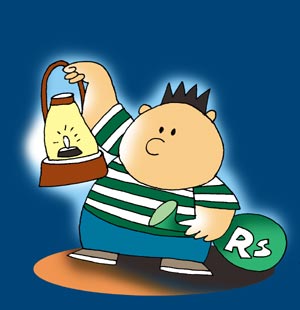Photographs: Uttam Ghosh/Rediff.com Alok Patnia, TaxMantra.com
Find out if you are an 'assessee in default' and how it affects you
Any assessee who fails to pay off whole or part of the demand raised by the Income Tax authorities under section 156 within 30 days of its receipt, is usually termed as assessee in default.
Consequences of being an assessee in default:
Interest u/s 220
Simple interest @ 1 per cent per month is payable on the amount remaining unpaid. The interest shall be charged for the period beginning from the day immediately following the 30 days as aforesaid and ending on the date on which payment is made (here part of the month is considered as full month).
The interest under section 220 can be reduced or waived by the chief CIT or CIT subject to certain conditions. This section also provides that if chief CIT or CIT issues order to reduce the amount to be payable as tax due then the interest shall be reduced accordingly and the excess interest paid, if any, shall be refunded.
Defaulted on your tax dues? Face these consequences
Photographs: Dominic Xavier/Rediff.com
Penalty u/s 221
If the assessee is deemed as an Assessee in Default then in addition to interest under section 220, s/he shall be liable to pay a penalty which the Assessing Officer may levy. However such penalty shall not exceed the amount in arrears.
The penalty under section 221 shall not be levied if the assessee proves that the default was for good and sufficient reasons. This section also provides that where as a result of any final order the amount of tax, with respect to the default in the payment of which the penalty was levied, has been wholly or partly reduced, the penalty levied shall be cancelled or partly reduced and the amount of penalty paid shall be refunded.
Please note that the penalty and interest for being an assessee in default is in addition to the interest under sections 234A, 234B & 234C.
Let us understand this with help of a illustration...
Defaulted on your tax dues? Face these consequences
Photographs: Dominic Xavier/Rediff.com
Example: Notice of demand u/s 156 for Rs 1 lakh is issued by the Assessing Officer on March 23, 2013 and is received by the assessee on March 25, 2013. The assessee pays the demand of Rs 1 lakh on July 29, 2013.
In the above case, the assessee should have paid the demand of Rs 1 lakh by April 24, 2013. The assessee is deemed as Assessee in Default from April 25, 2012 and shall be liable to pay interest u/s 220 for four months:
- 25-04-2013 to 24-05-2013 -- 1 month
- 25-05-2013 to 24-06-2013 -- 1 month
- 25-06-2013 to 24-07-2013 -- 1 month
- 25-07-2013 to 29-07-2013 -- 1 month
- Interest u/s 220 = Rs 100,000 × 1 per cent × 4 months = Rs 4,000
Assessing Officer can also levy penalty u/s 221 for being an assessee in default and the penalty can be levied upto Rs 1 lakh.
Defaulted on your tax dues? Face these consequences
Photographs: Uttam Ghosh/Rediff.com
To conclude thus, it becomes very important for an assessee to do the following upon receipt of any demand order:
Step 1: Determine if the tax demand is genuine or not
Step 2: Pay-off taxes within the time allowed if demand is genuine or communicate to the Assessing Officer for allowing sometime for paying off the same
Step 3: If the assessee is of the opinion that the demand is not genuine, then, the assessee should take alternative recourse of filing appeal with the higher authority and also intimate the
Assessing Officer to not to treat the assessee in default till the time, the appeal is not disposed off.
We suggest that any demand notice should not be taken lightly and rightful action should be taken within the stipulated time. In the recent past, the IT department has become very stringent and has been enforcing penalty.






Comment
article